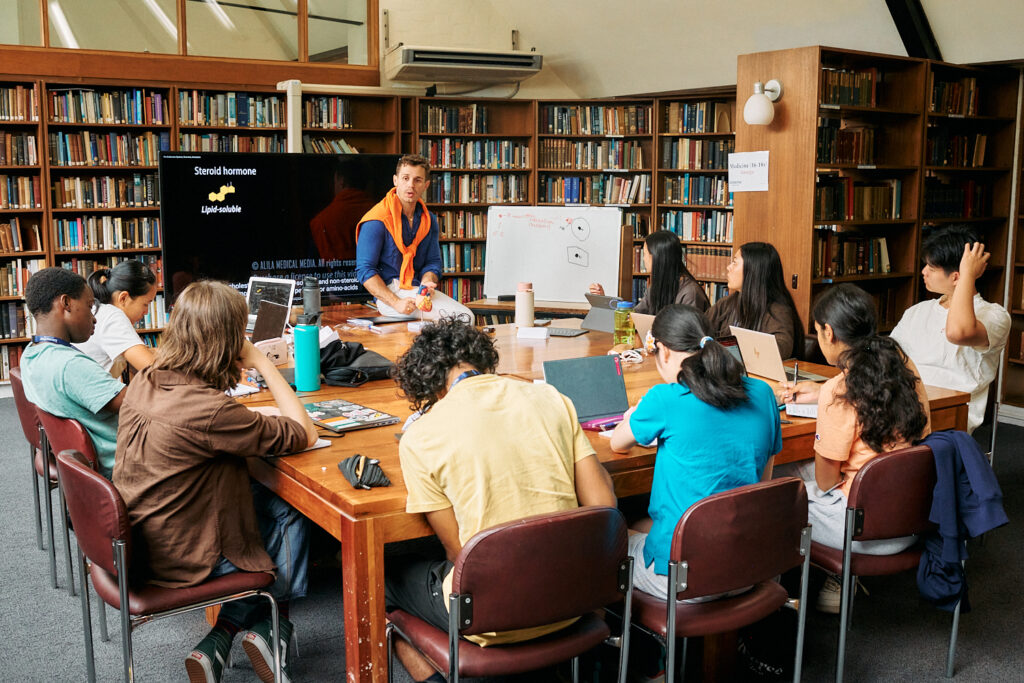Figuring out what A-Levels to take for a future career after studying International Relations can be daunting. Especially if you’re not sure what you want to do yet.
You might feel like you’re stuck between a rock and a hard place when it comes to making decisions about your future.
To help you have a better idea of whether you want to commit to International Relations in higher education, consider taking the Immerse Education International Relations summer course. Our students receive 1:1 personalised coaching from expert International Relations tutors to help them decide their next steps in education and future goals.
If you are certain you’re interested in International Relations, we’ve created this guide to help make things easier for you. We’ve outlined the best A-Levels for students interested in pursuing a career in International Relations.
What A-Levels Are Best for International Relations
Let’s look at some of the best International Relations universities in the UK and check what A-Levels they require for International Relations.
The London School of Economics and Political Science
AAA, usual sixth form subject choices are a combination of these subjects: English, History, Economics, Sociology, Government and Politics, Psychology, Philosophy, Geography, and Languages. A broad mix of subjects is preferred.
University of Cambridge
There are two pathways to study Politics and International Relations at the University of Cambridge: Human, Social, and Political Sciences and the History and Politics course.
- Human, Social, and Political Sciences – A*AA, taking an essay-based A-Level subject is not required but useful.
- History and Politics – A*AA, History A-Level is not required but useful.
King’s College London
A*AA, Thinking Skills, General Studies, Critical Thinking and Global Perspectives are not accepted.
Queen Mary University of London
ABB, General Studies and Critical Thinking are excluded.
University of Manchester
AAA, one of the subjects must include the following:
- Accounting
- Anthropology
- Business Studies
- Classics
- Economics
- English Language/Literature
- Further Mathematics
- Geography
- History
- Law
- Mathematics
- Modern Languages
- Philosophy
- Politics
- Psychology
- Religious Studies
- Sociology
- Use of Mathematics
- World Development
What A-Levels are best for International Relations? A broad combination of maths/science, essay-based subject, and arts. To help narrow down your options, take note of the “facilitating subjects”.
Facilitating Subjects
What are Facilitating Subjects? These subjects are most commonly required by universities for a wide range of courses. Taking one of these will help keep your options open. Facilitating subjects include:
- Maths and further maths
- Physics
- Biology
- Chemistry
- English Literature
- Geography
- History
- Classical Languages
- Modern Languages
Does International Relations Require Maths?
No, International Relations doesn’t usually require Maths. But do you know that Maths is valuable preparation for International Relations? That’s because you’ll often encounter statistics and graphs throughout your International Relations course. So if you want to breeze through the Mathematical hurdles, take Maths at A-Level.
Where Can I Study International Relations in the UK?
There are many good International Relations schools in the UK. The best universities include:
- University of Oxford – International Relations is offered as a Master degree. But you can study undergraduate politics that also tackles International Relations in one of its modules. There are two choices you can make:
- The London School of Economics and Political Science
- University of Cambridge – you can specialise in International Relations via any of these two pathways:
- King’s College London
- Queen Mary University of London
- University of Manchester
- SOAS University of London
- University of Essex
- University of Sheffield
- University of Warwick
What to Expect Studying International Relations
International Relations studies how states interact with each other within a global, interstate system. It observes private, governmental, and intergovernmental behaviour. When studying International Relations at the university, expect to find these common topics:
- International Relations Theories and Concepts
- International Political Economy
- Contemporary Issues
- International Political Theory
- Peace and War Studies
- International Organisations
- Foreign Policy Analysis
- International Security
Teaching and learning often include lectures, independent study, and group discussions.
To learn more about the topics you can expect to learn from a university-level International Relations programme with Immerse, download a syllabus overview.
Join the Immerse Education 2025 Essay Competition
Follow the instructions to write and submit your best essay for a chance to be awarded a 100% scholarship.

Skills and Career Prospects With International Relations?
What skills will you gain from studying International Relations? What are the career options open to you after graduation? Read International Relations Career Prospects Guide to learn more.



















